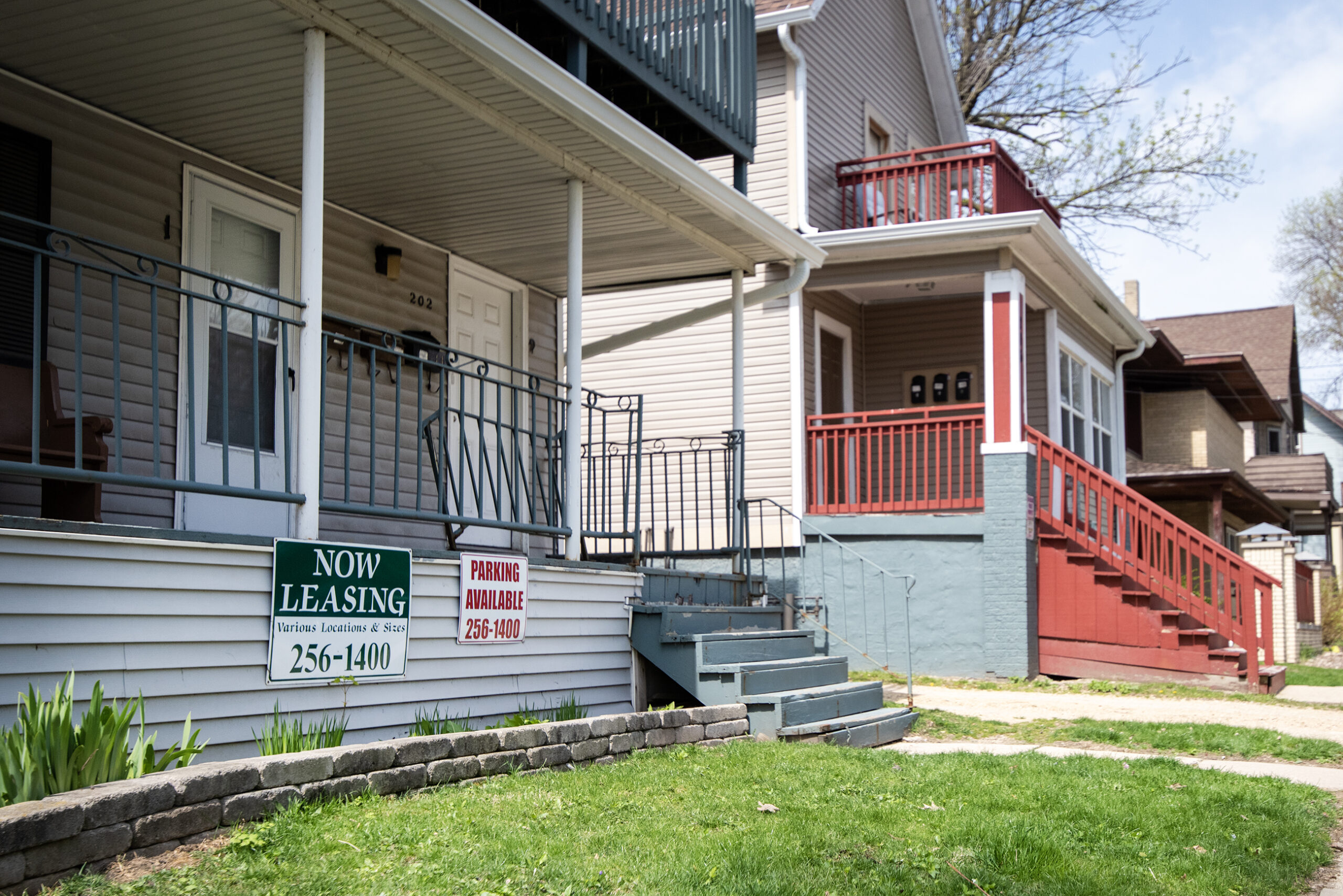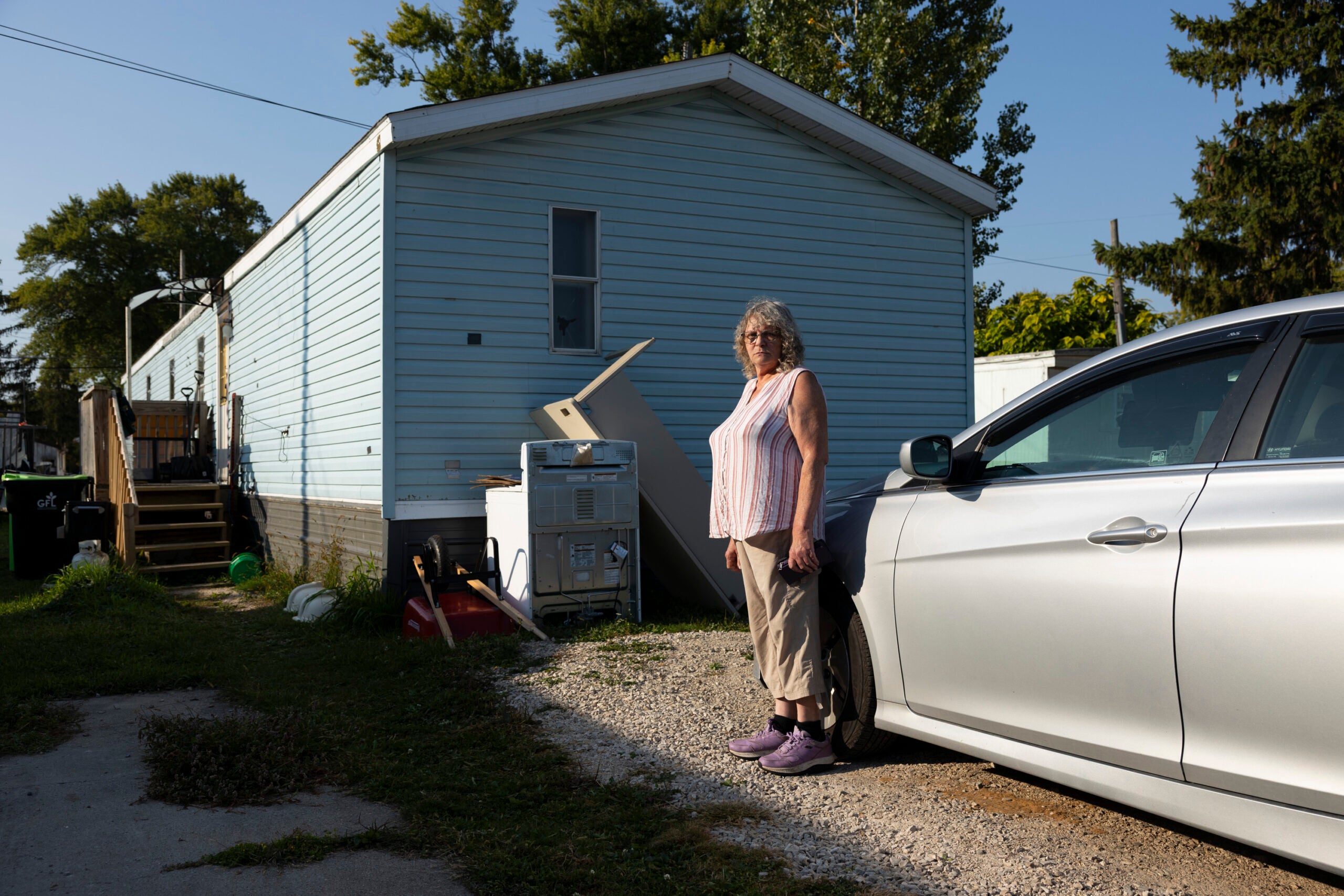Last year, the number of eviction filings in Dane County nearly doubled compared to 2022.
In 2023, Dane County landlords sought evictions in nearly 2,500 cases, according to a report released by the Eviction Diversion and Defense Partnership.
That’s a 45 percent increase over the year prior, and more than three times the number of cases filed in 2021, according to data compiled by the partnership.
News with a little more humanity
WPR’s “Wisconsin Today” newsletter keeps you connected to the state you love without feeling overwhelmed. No paywall. No agenda. No corporate filter.
The Eviction Diversion and Defense Partnership formed in 2021 as a coalition of tenant advocacy groups. It uses federal COVID relief funding that’s allocated through Dane County and the city of Madison to provide rental assistance and free legal help to Dane County residents who are facing eviction.
What’s fueling the spike in eviction proceedings?
The vast majority of evictions filed in Dane County were over unpaid rent, and the report cites unaffordable housing in greater Madison as a major factor.
“Available housing is incredibly low,” said Grace Kube, who co-directs the University of Wisconsin Law School’s Eviction Defense Clinic, which is part of the partnership. “And so much of that housing that is being built is not affordable, and so when folks are facing eviction, or not facing eviction and just trying to find somewhere to go, their options are so incredibly limited here.”
The report concludes “eviction court is increasingly used as a tool to collect rent from tenants,” and notes the average amount of rent owed at the time of filing was $2,761.
“In a lot of cases that I represent tenants, landlords have no intention of evicting the tenant — they’ve only initiated the process to receive rental assistance funds from the CORE program,” Kube said, referring to Dane County’s emergency rental assistance program.
The Eviction Diversion and Defense Partnership distributes that aid, which is available to help low-income renters cover rent and utilities.
Faced with limited funding, the coalition recently worked with the city of Madison and Dane County to tighten up the criteria for that assistance. As of last year, the grants are mostly limited to renters facing an active eviction case, said Hannah Renfro, executive director of the Tenant Resource Center, which oversees the partnership.
Federal aid for the emergency rental assistance program expires in the fall of 2025, but Renfro said the partnership aims to continue operating behind that point. She said leaders are exploring additional funding sources, including from the city of Madison, Dane County and private foundations.

Most cases did not result in people being evicted
Even after landlords started proceedings, the vast majority of eviction cases in Dane County did not result in courts booting people from their homes.
Over 80 percent of Dane County’s eviction cases were dismissed last year, according to the report, which pointed to services from the Eviction Diversion and Defense Partnership as a major factor in stopping evictions from being carried out.
Still, Legal Action of Wisconsin staff attorney Erin Kautz says even a quashed eviction case can have lingering effects.
Generally, such records remain searchable through Wisconsin’s Consolidated Court Automation Programs website for two years, and Kautz says landlords often reject tenants because of past proceedings.
“If they see that there is an eviction filing that is on the court web site, basically a lot of places will just automatically deny your application,” Kautz said. “There’s not a lot of further investigation into how that case ended up.”
Eviction filings rose statewide
Across Wisconsin, eviction filings also rose in 2023, though the increase was less steep than in Dane County, data from Wisconsin’s Department of Administration shows.
Last year, Wisconsin landlords filed for eviction in more than 28,000 cases, representing a 9 percent increase in the number of filings compared to 2022.
Wisconsin Public Radio, © Copyright 2026, Board of Regents of the University of Wisconsin System and Wisconsin Educational Communications Board.







